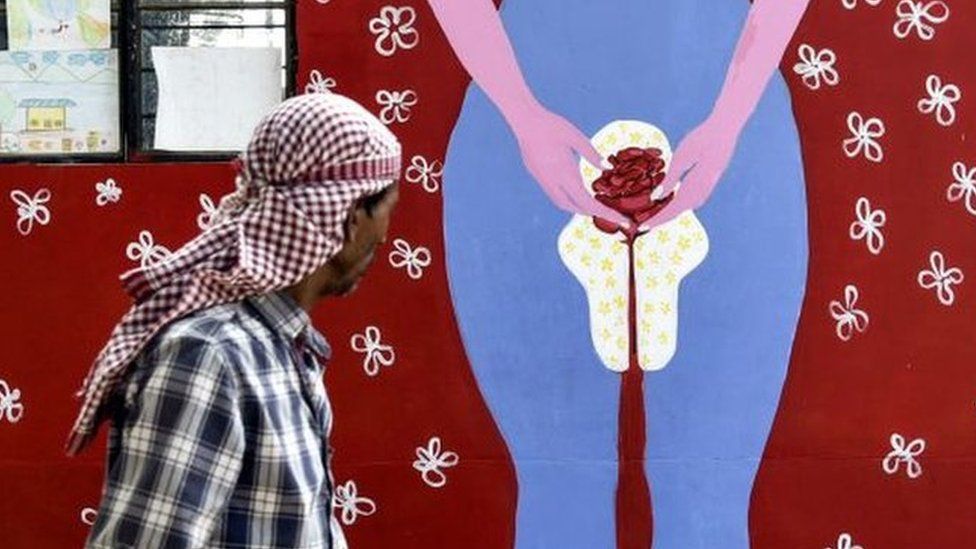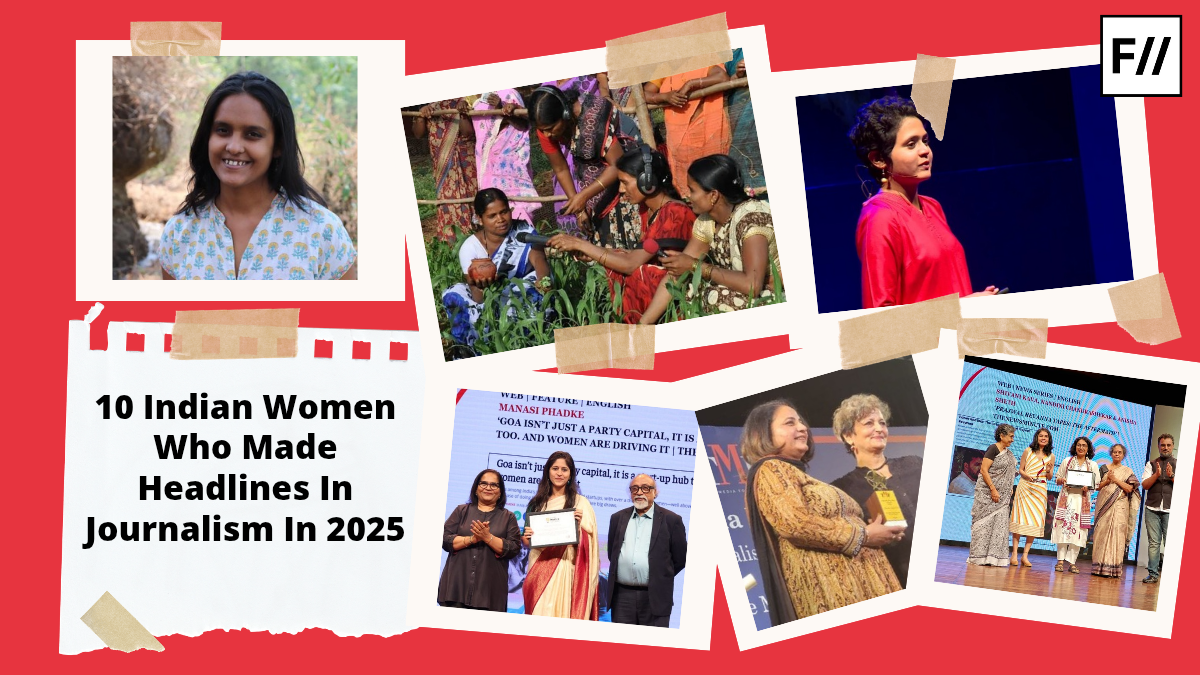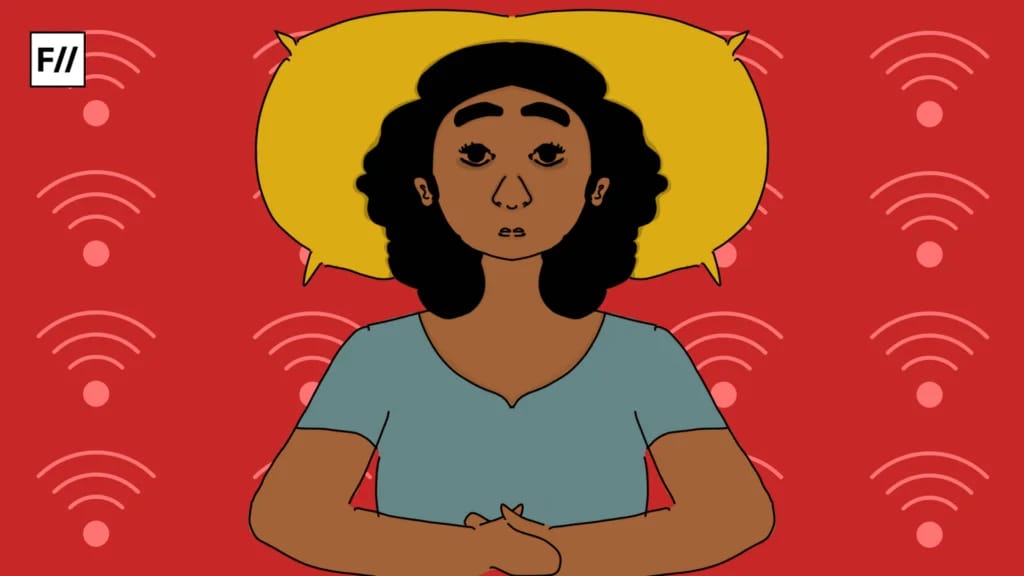Editor’s Note: This month, that is May 2020, FII’s #MoodOfTheMonth is Menstrual Health, where we invite various articles about various experiences that revolve around menstruation or the absence of the same. If you’d like to share your article, email us at pragya@feminisminindia.com.
Gender inequality is deeply rooted within Indian society. Despite multiple programmes addressing gender inequality, it is disheartening to know that India has slipped down four positions from 108 to 112 in the World Economic Forum’s Global Gender Gap Index 2020. These inequalities affect one’s identity in multiple ways through their gender, age, religion, caste, and many more forms. They also lead to gender stereotyping and further to the creation of power imbalances, which leads to the creation of patriarchal societal norms. Women’s voices are not heard in terms of accessing the resources of their choice, freedom of movement, or with regards to making household decisions. One such issue where women are discouraged to raise their voices is menstruation.
Unless men do not discuss about menstruation, they won’t be able to talk about Menstrual Hygiene Management (MHM). MHM requires an individual to have adequate menstrual hygiene facilities that includes providing a clean private space for women to change their clothes, soap and water to clean their private parts (labia) and dustbins to dispose off their menstrual/sanitary waste. Lack of discussion on MHM shows another manifestation of gender inequality. These inequalities lead to different societal and cultural taboos, which further puts restrictions on girls during periods, thus, aggravating their difficulties and widening the disparity. These restrictive measures include but are not limited to, living in social isolation, dietary restrictions, and preventing from doing daily activities like taking a bath, entering religious places or cooking.
Unless men do not discuss about menstruation, they won’t be able to talk about Menstrual Hygiene Management (MHM). MHM requires an individual to have adequate menstrual hygiene facilities that includes providing a clean private space for women to change their clothes, soap and water to clean their private parts and dustbins to dispose off their menstrual/sanitary waste.
MHM is considered as ‘women’s issue (Auraton ki dikkat)’, which is to be discussed inside four walls with no male members, and thus, it seems as if they do not need to express their concerns in the home, community, or society. However, one question that always remains unanswered is, who is driving these taboos and myths around menstruation?
Multiple studies have shown that attitudes of men are the ones driving these taboos and myths around menstruation. Thus, poor MHM knowledge, along with the oppressive societal norms for sexual and reproductive health in India, has aggravated the gender disparities. Society for Participatory Research in Asia (PRIA) chief, VP Gupta believes that attitudinal change is the key to gender parity which will come from proper and adequate education for men and women. Men influence the women’s experience of menstruation in many roles, i.e., as a husband, brother, father, teacher, peer, policymaker. Thus, men in any of the roles must be involved in the ongoing discussions about menstruation.
One of the crucial issues that women face in the schools is bullying from boys, which directly impacts their non-cognitive skills, including self-esteem. As mentioned in a study, one of the girls explains her experience as, “Boys make you feel ashamed. They are rough with us and go into our bags and would see our clothes if we brought them to school.” Such instances break their confidence, and they cannot even approach teachers. Another issue that girls face in the schools is that male teachers do not allow girls to go to the toilet during the class and takes girls’ low participation in the class as less attention in the class. Thus, it is crucial to sensitize men so that they can support their classmates and students and help in creating a place with no stigmas.
Also read: Why Is Menstrual Health Awareness Not Enough In India?
Patriarchy is deeply rooted in our society, where men exercise power over women in all socio-economic institutions of the society, and they exercise this power by taking a significant role in decision making. Women are seen as a second-class citizens with very little power. One of the reasons why women are not able to manage their menses is their inability to control resources (buying soap and clothes to manage menstruation) or move freely (go to market, healthcare facility) or make independent decisions about their personal needs (buying a pad of their choice). As per NFHS 4 data, 50% of the married women are not able to freely go to market or healthcare facility or outside their community, and only 10% of the women can make independent decisions (decided by women alone).
In India, cultural norms and taboos around menstruation may stop a woman from using toilets during menstruation. In such cases, even if women have bathrooms in their homes, they won’t be able to use them due to taboos and myth. For instance, many girls avoid using washrooms during menstruation as the drain that leads out that waste is not covered, and they fear that their brother or father who are sitting outside may see it. A study by Water Aid in Nepal claims that now slowly, men are becoming culturally advanced and do not believe in these taboos or myths around menstruation. However, we still have a long way to go.
Patriarchy is deeply rooted in our society, where men exercise power over women in all socio-economic institutions of the society, and they exercise this power by taking a significant role in decision making. Women are seen as a second-class citizens with very little power. One of the reasons why women are not able to manage their menses is their inability to control resources.
Patriarchal society taboos the discussion on the issues of menstruation in the family, and hence as studies show, men barely know anything about menstruation. Thus, there is a need to involve men in this profoundly tabooed topic to remove the stigma around menstruation. Another focal point of involving men in the menstrual issues is to change the societal norms and negative views of menstruation, thus, promoting the idea of better MHM and importance of investing in Water, Sanitation and Hygiene facilities, not only as family members but in broader roles as policymakers and stakeholders as well.
There is a need to start comprehensive puberty education programs for boys and girls in school and community level education programs for parents. Equal focus should be given to sensitize the men as much as to women in the community so that they can positively start supporting the women. The inclusion of all the family members in such comprehensive education programs will improve the parenting skills as well as enhance the communication about sexual and reproductive health among the family members.
Also read: National Period Day: Make Menstrual Hygiene An Active Concern In Health Manifestos
To conclude, we can say that the dominant discourse in the society is generally the one which concerns men, and as MHM is not their concern, it is not talked out loud or considered important by them. Hence, we need a narrative which tells how MHM is crucial for men as well. Men have to be sensitized about how their actions (or inaction) may influence women’s wellbeing (social, economic, psychological), which they would otherwise never realise, if we don’t discuss it.
Featured Image Source: BBC
About the author(s)
Karan Babbar is an Assistant Professor at Centre for Development Studies, Jindal Global Business School, OP Jindal Global University.




